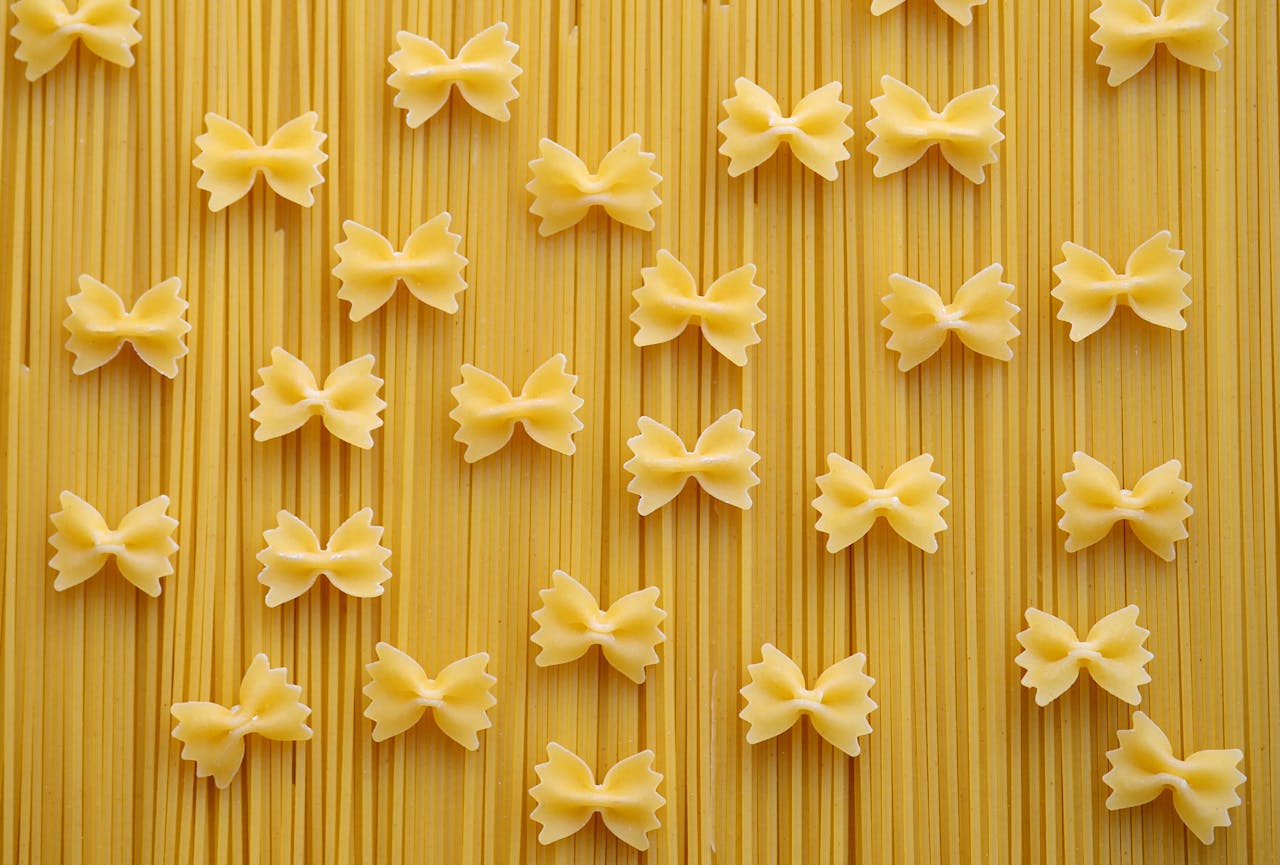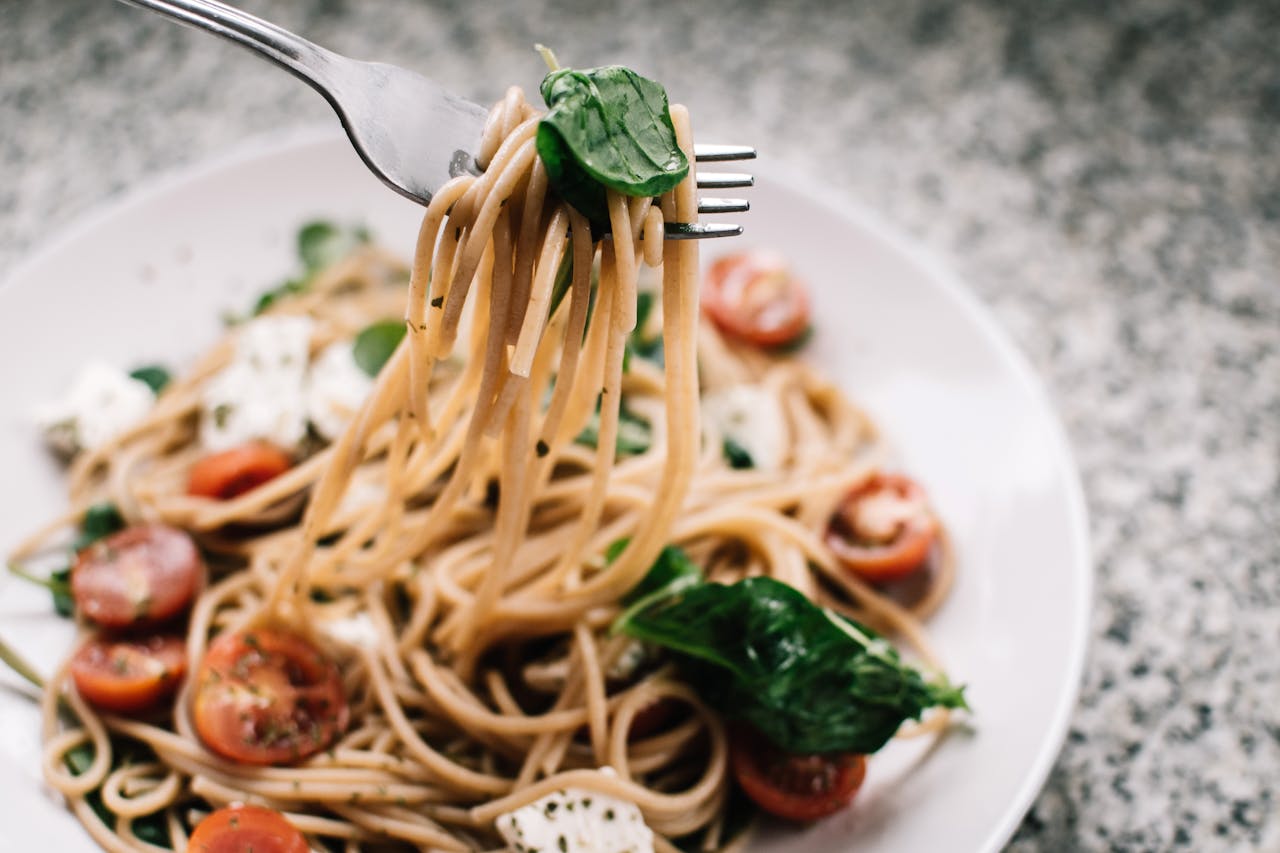The Secret to Perfectly Cooked Pasta
Cooking pasta to perfection is an art that balances timing, technique, and a few culinary secrets. Whether you're preparing a simple spaghetti dish or a gourmet pasta recipe, achieving that ideal al dente texture can elevate your meal. Here’s your comprehensive guide to perfectly cooked pasta every time.


Choosing the Right Pasta
Start by selecting high-quality pasta. While dried pasta is more common and convenient, fresh pasta offers a different texture and flavor.
1. Dried Pasta
- Quality Matters: Opt for pasta made from 100% durum wheat semolina for the best texture and flavor.
- Shape Selection: Choose the shape that best suits your sauce. For instance, penne holds up well with thick, chunky sauces, while spaghetti pairs perfectly with lighter, smoother sauces.
2. Fresh Pasta
- Delicate Texture: Fresh pasta is more tender and cooks faster than dried pasta. It pairs well with light, delicate sauces.
- Homemade Option: If possible, try making fresh pasta at home for an authentic experience. It allows you to customize flavors and ingredients.
Preparing the Water
The right water preparation is crucial for perfect pasta.
1. Plenty of Water
- Use a Large Pot: Pasta needs space to move and cook evenly. Use at least 4-6 quarts of water per pound of pasta.
- Avoid Overcrowding: If you’re cooking a large quantity, consider using multiple pots to prevent sticking and uneven cooking.
2. Properly Salted Water
- Season Generously: Add about 1-2 tablespoons of salt per 4-6 quarts of water. The water should taste like the sea.
- Enhances Flavor: Salting the water is your only chance to season the pasta itself, so don’t skimp on this step.
Cooking the Pasta
Timing and technique are everything when it comes to cooking pasta.
1. Boil Before Adding Pasta
- Rolling Boil: Ensure the water is at a full, rolling boil before adding the pasta. This prevents the pasta from becoming gummy and sticking together.
- Stir Initially: Stir the pasta immediately after adding it to the boiling water to prevent clumping.
2. Cook to Al Dente
- Check the Package: Follow the package instructions for cooking times, but start checking a couple of minutes earlier.
- Taste Test: The best way to determine doneness is to taste a piece. It should be firm to the bite (al dente) but not hard in the center.
- Reserve Pasta Water: Before draining, reserve a cup of pasta water. This starchy water can help adjust the consistency of your sauce later.
Finishing the Pasta
How you finish your pasta can make all the difference.
1. Don’t Rinse
- Keep the Starch: After draining, do not rinse the pasta. The starch helps the sauce adhere better.
- Combine Immediately: Toss the pasta with your sauce immediately after draining to prevent it from sticking and to allow it to absorb the flavors.
2. Use Pasta Water
- Adjust Sauce Consistency: Add a little reserved pasta water to your sauce to loosen it up and help it coat the pasta evenly.
- Enhance Creaminess: The starch in the pasta water can also add a silky texture to your sauce.
Pro Tips for Perfect Pasta
1. Finish in the Sauce
- Final Cooking: For the best flavor integration, finish cooking the pasta in the sauce for the last 1-2 minutes of cooking time.
- Absorb Flavors: This method allows the pasta to absorb the sauce’s flavors and thicken slightly from the starch.
2. Add Fresh Ingredients
- Fresh Herbs: Add a handful of fresh herbs like basil, parsley, or oregano right before serving to enhance the freshness.
- Cheese and Oil: A drizzle of high-quality olive oil and a sprinkle of freshly grated Parmesan can elevate your dish.
3. Avoid Overcooking
- Serve Immediately: Serve the pasta immediately after combining it with the sauce to maintain its perfect texture.
- Avoid Waiting: If you must wait before serving, keep the pasta and sauce separate, and combine them just before serving.


Perfectly cooked pasta is about attention to detail and a few key techniques. By choosing high-quality pasta, properly seasoning your water, cooking to al dente, and finishing the pasta in the sauce, you can ensure a delicious and satisfying dish every time. Remember, the key is practice and tasting along the way. Buon appetito!












